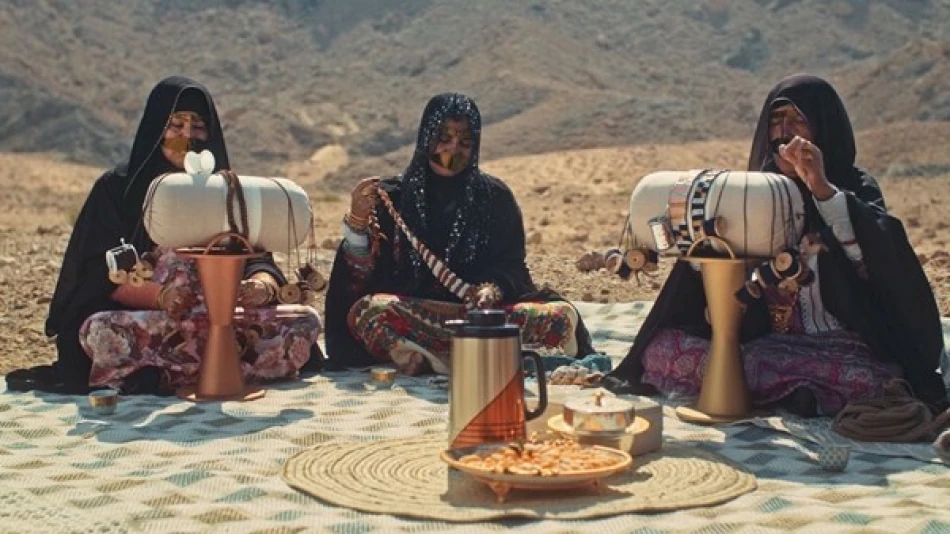
Empowering Emirati Women: From Intellectual Concept to Comprehensive National Approach
UAE's Sharjah Pioneers New Model for Women's Economic Empowerment Through Heritage and Innovation
The UAE's approach to women's empowerment has evolved far beyond traditional support mechanisms, with Sharjah leading a transformation that merges cultural preservation with economic opportunity. Two pioneering institutions—Nama Women Advancement Establishment and the Irthi Contemporary Crafts Council—are demonstrating how sustainable women's empowerment can drive both economic growth and cultural continuity, offering a blueprint that other nations could follow.
From Policy to Practice: Sharjah's Institutional Approach
The UAE's National Policy for Women's Empowerment 2023-2031 represents more than governmental rhetoric—it reflects a comprehensive strategy where women's participation becomes integral to sustainable development. This policy framework has found concrete expression in Sharjah through institutions that go beyond temporary support to create lasting economic ecosystems.
Established in 2015 under an Emiri decree by Sheikh Dr. Sultan bin Muhammad Al Qasimi and chaired by Sheikha Jawaher bint Muhammad Al Qasimi, Nama has developed what could be termed "systematic empowerment"—an approach that combines policy advocacy, skills development, and market access into a unified strategy.
Breaking Ground with Progressive Workplace Policies
Nama's influence extends beyond training programs into policy innovation. The institution successfully advocated for "care leave" policies within Sharjah's government, allowing working mothers to care for children with disabilities or chronic illnesses. This represents a significant advancement in regional workplace policy, potentially setting precedent for other Gulf states grappling with work-life balance issues in their rapidly modernizing economies.
The institution's "Irtiqaa" initiative focuses specifically on workplace equality and opportunity parity—addressing systemic barriers rather than individual skill gaps. This institutional approach mirrors successful models seen in Nordic countries, where comprehensive policy frameworks support women's economic participation at multiple levels.
Heritage as Economic Engine: The Irthi Model
Perhaps more innovative is the Irthi Contemporary Crafts Council's approach to women's empowerment through cultural preservation. By transforming traditional crafts into globally competitive products, Irthi has created what economists might call a "heritage economy"—where cultural assets become sustainable income sources.
Global Market Integration
Irthi's partnerships with prestigious international platforms like the London Design Fair and Milan Design Week represent strategic market positioning that many developing nations struggle to achieve. These partnerships don't merely showcase products—they establish distribution networks and brand recognition that can sustain artisan communities long-term.
The council's success contributed to Sharjah's recognition as a UNESCO Creative City for the traditional craft of Talli, demonstrating how local cultural preservation can achieve international validation and market access simultaneously.
Economic Impact and Scalability
The Sharjah model addresses a critical challenge facing many emerging economies: how to integrate traditional communities, particularly women, into modern economic structures without erasing cultural identity. By creating professional training programs across the Middle East, North Africa, and Asia, these institutions are essentially exporting a replicable model.
This approach contrasts sharply with conventional development models that often view traditional practices as obstacles to modernization. Instead, Sharjah has demonstrated how heritage can become a competitive economic advantage when properly supported by institutional frameworks and international marketing strategies.
Investment and Sustainability Implications
For investors and development organizations, the Sharjah model offers compelling evidence that women's empowerment initiatives can be both culturally sensitive and economically viable. The integration of policy advocacy, skills development, and market access creates multiple revenue streams and reduces dependency on external funding—a critical factor for program sustainability.
The success of these initiatives also suggests potential for similar approaches in other regions with rich craft traditions, from Latin America to Southeast Asia, where women often possess traditional skills that could be leveraged for economic empowerment.
Regional Leadership and Future Implications
Sharjah's institutional approach to women's empowerment positions the emirate as a regional leader in sustainable development models. Unlike approaches that focus solely on modern sectors like technology or finance, this strategy acknowledges that economic empowerment must work within existing cultural frameworks to achieve lasting impact.
The success of Nama and Irthi demonstrates that effective women's empowerment requires institutional thinking—creating systems that can adapt and scale rather than depending on individual programs or temporary initiatives. This systematic approach could prove particularly valuable as other Gulf states seek to diversify their economies while maintaining cultural authenticity.
The Sharjah model ultimately suggests that the most sustainable forms of women's empowerment may not require choosing between tradition and progress, but rather finding innovative ways to make them mutually reinforcing.
Most Viewed News

 Layla Al Mansoori
Layla Al Mansoori






